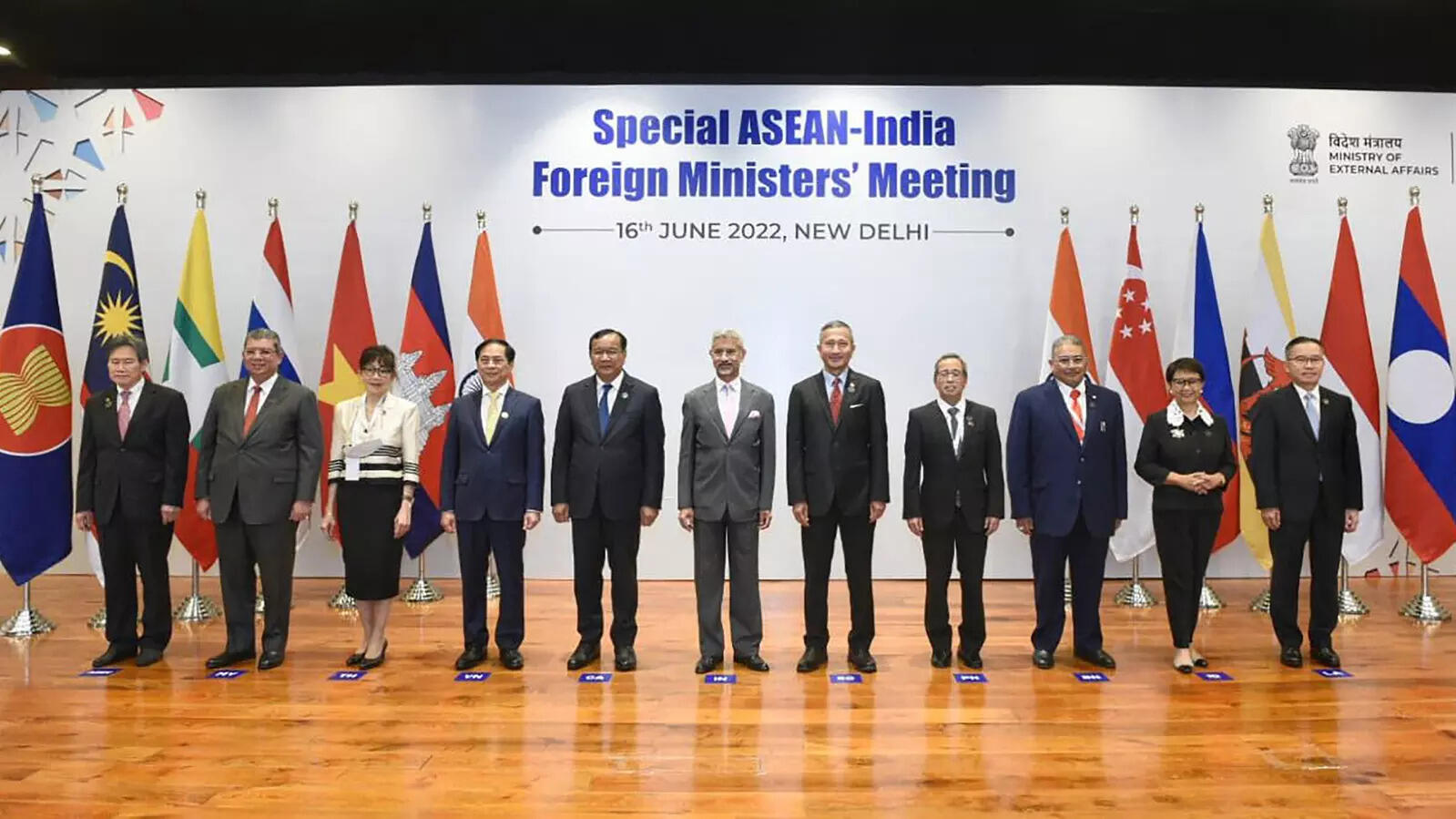
India and the ASEAN on Thursday agreed to work towards a comprehensive strategic partnership that is meaningful, substantive and mutually-beneficial by further enhancing their strategic ties. This was stated in a statement by External Affairs Minister S Jaishankar and his Singaporean counterpart Vivian Balakrishnan at the India-ASEAN foreign ministerial meeting being hosted by New Delhi to mark the 30th anniversary of its relations with the 10-nation grouping.
Jaishankar and Balakrishnan are the co-chairs of the two-day meeting that began on Thursday.
It is understood that the meeting discussed the situation in the South China Sea, a resource-rich region that has been witnessing increasing Chinese muscle-flexing.
In their statement, the co-chairs said the meeting reaffirmed commitment to multilateralism founded on the principles of international laws including the Charter of the United Nations, the 1982 UN Convention on the Law of the Sea (UNCLOS) and other relevant UN treaties and conventions.
The foreign ministers agreed to work towards maintaining an open and inclusive regional cooperation framework, support ASEAN centrality in the evolving rules-based regional architecture and uphold multilateralism in jointly responding to regional and global challenges.
The Association of Southeast Asian Nations (ASEAN) is considered one of the most influential groupings in the region, and India and several other countries, including the US, China, Japan and Australia, are its dialogue partners.
In their statement, the co-chairs said the meeting agreed to further strengthen and deepen the ASEAN-India strategic partnership across the whole spectrum of political, security, economic, socio-cultural and development cooperation by utilising existing ASEAN-led mechanisms.
The meeting agreed to work towards a comprehensive strategic partnership between the ASEAN and India that is “meaningful, substantive and mutually-beneficial by further enhancing ASEAN-India strategic partnership”, they said.
The co-chairs said the meeting welcomed ASEAN-India cooperation in preventing and countering terrorism, the rise of radicalisation and violent extremism, and combating transnational crimes.
Recognising the importance of the health sector, the meeting agreed to cooperate in vaccine production and distribution, research and innovation in generic medicines, cooperation on traditional medicines, strengthening public health infrastructure and enhancing capacities for preparedness and response to pandemic and public health emergencies.
In the sphere of trade, the two sides agreed to work towards realising the full potential including through enhanced utilisation and effective implementation of the ASEAN-India Free Trade Area (AIFTA) by the early commencement of the review of the ASEAN-India trade in goods agreement to ensure that it is more user friendly and simple.
The co-chairs’ statement said the two sides also agreed to strengthen regional connectivity, including both physical and digital, and explore synergies between connectivity initiatives of India and the ASEAN.
The meeting emphasised the need for the early completion and operationalisation of the India-Myanmar-Thailand trilateral highway and looked forward to its eastward extension to Laos, Cambodia and Vietnam.
The foreign ministers also emphasised the need for more robust air and maritime connectivity.
The co-chairs’ statement said both sides agreed to explore potential cooperation between the ASEAN Outlook on Indo-Pacific (AOIP) and India’s Indo-Pacific Ocean’s Initiative (IPOI) in areas such as maritime security, maritime connectivity and the blue economy.
It said the meeting welcomed the proposed ASEAN-India maritime exercise.
The two sides also vowed to deepen cooperation for sustainable management of natural resources and greater utilisation of renewable, clean and low-carbon energy, including offshore wind energy, green hydrogen, developing smart grid and working towards sustainable development.
The ASEAN-India dialogue relations started with the establishment of sectoral partnership in 1992 which graduated to full dialogue partnership in December 1995 and summit level partnership in 2002.
The ties were elevated to strategic partnership in 2012. The ASEAN is central to India’s Act East Policy and its vision for the wider Indo-Pacific.
The ASEAN comprises Indonesia, Thailand, Vietnam, Laos, Brunei, the Philippines, Singapore, Cambodia, Malaysia and Myanmar.